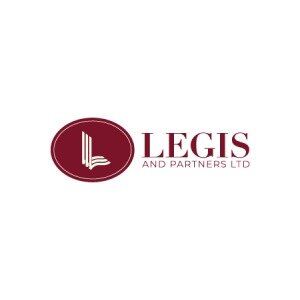Best Commercial Real Estate Lawyers in Port Louis
Share your needs with us, get contacted by law firms.
Free. Takes 2 min.
Free Guide to Hiring a Real Estate Lawyer
List of the best lawyers in Port Louis, Mauritius
About Commercial Real Estate Law in Port Louis, Mauritius
Commercial Real Estate in Port Louis, Mauritius, involves the legal aspects related to properties intended for business activities. This includes offices, retail spaces, warehouses, industrial properties, and more. Port Louis, being the capital city and the economic hub, is a prime location for commercial properties. The legal framework governing commercial real estate in Port Louis includes a mix of local ordinances, national laws, and international standards. This regulatory environment ensures transparent transactions, protection of property rights, and promotes investment in the real estate sector.
Why You May Need a Lawyer
Engaging a lawyer for commercial real estate transactions in Port Louis is crucial due to the complex nature of these dealings. Here are some common scenarios where legal assistance might be necessary:
- Property Acquisition: Ensuring due diligence, clear title, and adherence to local regulations.
- Lease Agreements: Drafting and negotiating lease terms to protect your interests.
- Zoning and Land Use: Navigating the local zoning laws to avoid legal issues with intended property use.
- Dispute Resolution: Handling disputes related to property boundaries, tenant issues, or contract breaches.
- Financing: Assisting with mortgage agreements and financial arrangements.
- Property Development: Managing the legal aspects of construction contracts, permits, and regulatory compliance.
Local Laws Overview
Several key pieces of legislation and regulations pertain to commercial real estate in Port Louis, Mauritius:
- Landlord and Tenant Act: Governs lease agreements and the rights and responsibilities of landlords and tenants.
- Land Acquisition Act: Details the procedures for acquiring land for development or investment purposes.
- Building Act: Specifies building regulations and standards for construction and use of commercial properties.
- Planning and Development Act: Provides the framework for land use planning and zoning regulations.
- Non-Citizens Property Restriction Act: Regulates property ownership and investment by non-residents.
Frequently Asked Questions
What is the process for purchasing commercial property in Port Louis?
The process involves identifying the property, performing due diligence, negotiating the terms, drafting a Sales Purchase Agreement (SPA), obtaining necessary permits, and completing the transaction through a notary public.
Are there specific laws regulating foreign investment in commercial real estate?
Yes, the Non-Citizens Property Restriction Act regulates foreign investment in real estate. Non-citizens must seek approval from the Economic Development Board (EDB) before purchasing property.
What taxes are involved in commercial real estate transactions?
Taxes may include registration duty, land transfer tax, and property tax. The rates and applicability depend on the transaction's nature and the property's value.
What should I consider when signing a commercial lease agreement?
Key considerations include the lease term, rent amount, renewal options, maintenance responsibilities, allowable uses, and termination clauses.
How can I resolve a dispute with my commercial tenant?
Disputes can often be resolved through negotiation or mediation. If these methods fail, legal action can be taken through the courts.
What are zoning laws, and how do they affect commercial property use?
Zoning laws define how properties in certain areas can be used (residential, commercial, industrial, etc.). It's crucial to ensure that your intended use complies with local zoning regulations.
Do I need a permit for renovating a commercial property?
Yes, significant renovations usually require permits from the local authorities to ensure compliance with building codes and safety standards.
Can a lawyer help with financing options for commercial real estate?
Absolutely, a lawyer can assist in understanding financing options, negotiating terms with lenders, and ensuring legal compliance with mortgage agreements.
What is the role of a notary in property transactions?
A notary public authenticates and formalizes the property sale, ensuring that all legal requirements are met and registering the transaction with the relevant authorities.
How can I ensure my commercial property investment is secure?
Conduct thorough due diligence, engage a knowledgeable lawyer, review all agreements carefully, and ensure compliance with all local laws and regulations.
Additional Resources
For further assistance, consider reaching out to the following resources:
- Economic Development Board (EDB): For foreign investment regulations and permits.
- Registrar-General’s Department: For property registration and title search services.
- Mauritius Chamber of Commerce and Industry (MCCI): Offers resources and support for businesses.
- Mauritius Bar Association: To find a qualified lawyer specializing in commercial real estate.
- Local Notary Public Services: For formalizing property transactions.
Next Steps
If you are in need of legal assistance in Commercial Real Estate, consider the following steps:
- Identify Your Needs: Determine the specific legal help you require, whether it’s for a transaction, dispute, lease agreement, etc.
- Research Law Firms: Look for law firms in Port Louis that specialize in commercial real estate law.
- Schedule Consultations: Book consultations with potential lawyers to discuss your needs and evaluate their expertise.
- Prepare Documentation: Gather all relevant documents related to your case or transaction.
- Engage a Lawyer: Once you find a suitable lawyer, engage their services and proceed with legal steps as advised.
Lawzana helps you find the best lawyers and law firms in Port Louis through a curated and pre-screened list of qualified legal professionals. Our platform offers rankings and detailed profiles of attorneys and law firms, allowing you to compare based on practice areas, including Commercial Real Estate, experience, and client feedback.
Each profile includes a description of the firm's areas of practice, client reviews, team members and partners, year of establishment, spoken languages, office locations, contact information, social media presence, and any published articles or resources. Most firms on our platform speak English and are experienced in both local and international legal matters.
Get a quote from top-rated law firms in Port Louis, Mauritius — quickly, securely, and without unnecessary hassle.
Disclaimer:
The information provided on this page is for general informational purposes only and does not constitute legal advice. While we strive to ensure the accuracy and relevance of the content, legal information may change over time, and interpretations of the law can vary. You should always consult with a qualified legal professional for advice specific to your situation.
We disclaim all liability for actions taken or not taken based on the content of this page. If you believe any information is incorrect or outdated, please contact us, and we will review and update it where appropriate.












